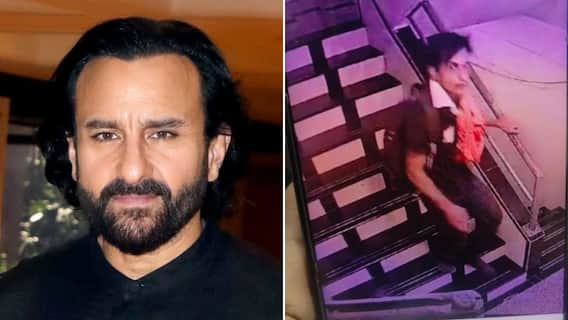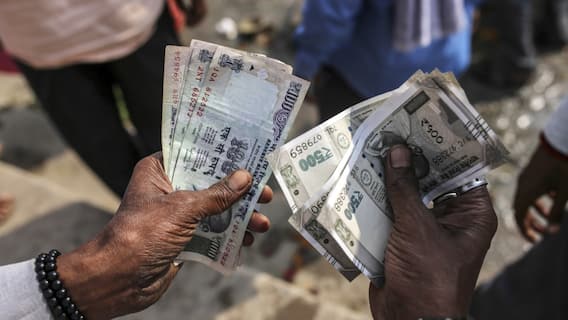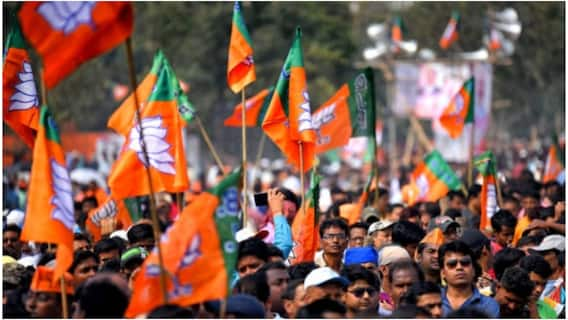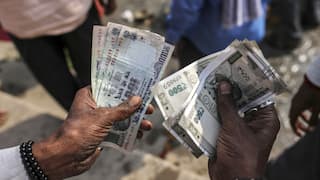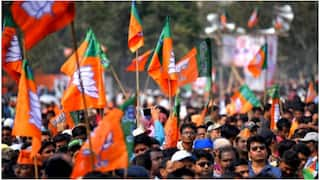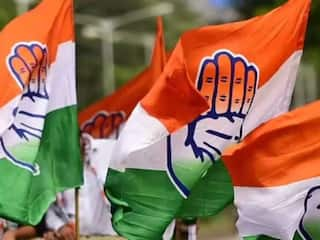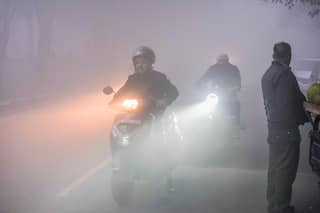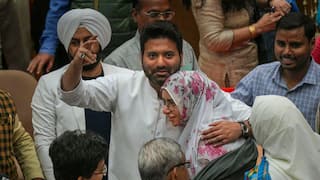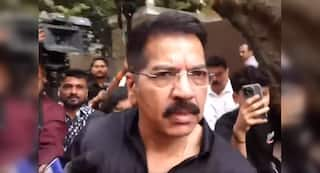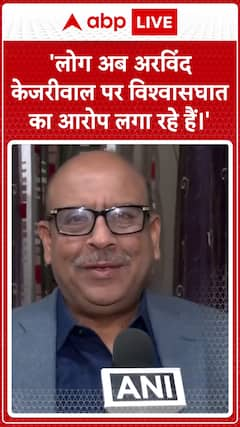Explorer
Yemen's Worst Humanitarian Crisis: Why Is It Important For World To Pay Attention To This Country
Years of conflict have left the country facing the world's worst humanitarian crisis. The UN has warned that the death toll from the Coronavirus pandemic could exceed the combined toll of war, disease, and hunger over the last five years.

(Image: AFP)
New Delhi: One of the poorest countries in the world, Yemen, dealing with severe political military crisis since Arab Spring in 2011, is now experiencing the world's worst humanitarian crisis owing to country's shattered health sector and the spread of COVID-19. ALSO READ | 'Coronavirus Is Airborne,' Claim 239 Scientists Across Globe, Ask WHO To Revise Recommendations In Open Letter
More than 100,000 people including civilians have been killed, mostly in air-strikes and direct armed conflict. Thousands more have died for reasons including malnutrition, disease and poor health. Currently, about 80% of the population - 24 million people - need humanitarian assistance and protection. According to UN, the Yemen is on the brink of the world's worst famine in 100 years if the war continues
Political Crisis In Yemen
The Yemen as single entity with capital Sanaa came into existence in 1990 when North Yemen and South Yemen united into a single state. Former president Ali Abdullah Saleh who ruled north Yemen since 1978, also became president of the unified state after 1990. The economy and army was controlled by his relatives and corruption was rife. Soon southern separatists, believing that their resources and powers were being robbed, tried to secede from the North in 1994.
In the far north also, people of the Zaidi Shia Muslim minority, having realized of becoming impoverished, formed the Houthi group, which fought Yemen's army and grew friendly with Iran. Following an Arab Spring uprising, the longtime authoritarian president, Saleh, had to hand over power to his deputy, Abdrabbuh Mansour Hadi, in 2011.
President Hadi struggled to deal with problems like corruption, attacks by Houthis, separatist movement in the south and also the continuing loyalty of security personnel to Saleh. Taking advantage of the new President's weakness, the Houthi movement took over control in large swaths in North including the capital Sanaa in early 2015 with help of local Sunnis and forces loyal to Saleh, forcing Mr. Hadi to flee first to Aden and then Saudi Arabia in March 2015.
Alarmed by the Iranian support to Houthis, Saudi Arabia and UAE formed a Western-backed coalition of eight Sunni Muslim allies and intervened to restore Hadi’s internationally recognized government and prevent Iran from gaining influence on its border. Coalition forces drove the Houthis out of much of the south. However, Houthis continued to hold most of the highlands and the Red Sea port of Hodaidah. U.N.-backed talks for peace in Yemen yielded no result.
ALSO READ | Kuwait's Expat Quota Bill: 8 Lakh Indians To Face Ouster After Bill Gets Approved | Know How & Why
In June 2018, the coalition imposed a blockade at Hudaidah port- principal lifeline for almost two thirds of Yemen's population, to stop Iran arming the Houthis. But the blockade led to substantial shortage of food and fuel, pushing more people into food insecurity and therefore UN objected to this restriction.
As military options faded the coalition backed U.N.-sponsored talks in December 2018. The warring sides agreed at talks in Sweden for troops redeployment deal for Hodeidah that failed to materialise, though a truce held. The UAE reduced its presence in Yemen but maintained influence via southern fighters.
Meanwhile, cracks also developed in the coalition and widened with Southern separatists- Southern Transitional Council (STC), formed in 2017 to push for the revival of the former independent state of South Yemen - supported by the UAE clashed with Saudi-backed fighters who were led by a commander having links with the Muslim Brotherhood. The situation worsened as death toll increased due to air strikes and the near famine conditions in Yemen prompting international outrage.
In November 2019, the Kingdom brokered a power-sharing deal in Riyadh between STC and Hadi's government to end a standoff in Aden which led the Hadi’s cabinet to return to Aden. But in Jan 2020, there was a sudden escalation in hostilities between the Houthis and coalition forces. In April 2020, the STC also declared self-rule in Aden and southern provinces, breaking a peace deal signed with the Hadi government. Though, Saudi Arabia announced a unilateral ceasefire due to Coronavirus pandemic but the Houthis rejected it, demanding the lifting of air and sea blockades in Sanaa and Hudaidah.
The STC also continued to make military gains, the latest in June when it seized control of the strategic island of Socotra, a sparsely populated archipelago at the mouth of the Gulf of Aden. Socotra, a UNESCO world heritage site due to its unique fauna and flora, once used to be an important halt on the maritime trading route from India to East Africa and Middle East. The inscriptions in Hoq Cave in Brahmi and a temple of Goddess “Socotri Mata” on the island associates it with India.
ALSO READ | "Thank You My Friend, America Loves India": Trump Thanks PM Modi For Greetings On US 244th Independence Day
Humanitarian Crisis In Yemen
Years of conflict have left the country facing the world's worst humanitarian crisis. According to the US-based Armed Conflict Location and Event Data, more than 100,000 fatalities, including 12,000 civilians had taken place in armed conflict by October 2019. The total number of displaced Yemenis in now almost four million. Thousands more civilians have died of malnutrition, disease and poor health. The Coronavirus pandemic is compounding the effects of war.
The UN has warned that the death toll from the Coronavirus pandemic could "exceed the combined toll of war, disease, and hunger over the last five years."
The health system is already on the brink of collapse while the cholera, malaria and dengue fever continues to threaten millions of lives. The Coronavirus cases are likely to be undercounted with extremely low testing rate.
Aid agencies, racing to contain COVID-19, estimate the need for up to $2.41 billion to cover essential lifesaving aid until the end of the year.
“Millions of children could be pushed to the brink of starvation amid a huge drop in aid caused by the COVID-19 pandemic”, a major UN charity warns. The UN under secretary-general for humanitarian affairs, Lowcock added: “The situation in Yemen is catastrophic. The world has a simple, straightforward choice- either resume funding of the Yemeni operation and save millions of lives or watch as the country simply falls of the cliff."
ALSO READ | 'Boycott China', Indian Americans, Taiwanese, Tibetans Protest Together At Times Square
World need to pay attention?
In addition to the sectarian divide and political military conflict that left lakhs killed, the economy shattered, the health system collapsed and nearly 4 million displaced, the ravaged nation now faces Coronavirus pandemic, starvation and acute shortage of funds.
Militants from al-Qaeda and its rival Islamic State, taking advantage of the chaos, are seizing territory in the south and carrying out deadly attacks. This situation not only spur regional tensions but also worries the West with the threat of attacks from al-Qaeda or IS affiliates. The conflict is also seen as proxy war between Iran and Saudi Arabia.
Strategically too, Yemen is important as it is located on a strait linking the Red Sea with the Gulf of Aden, through which much of the world's shipments pass.
Follow Breaking News on ABP Live for more latest stories and trending topics. Watch breaking news and top headlines online on ABP News LIVE TV
View More
Advertisement
Trending News
Advertisement
Advertisement
Top Headlines
Cities
Business
Election 2025
Election 2025
Advertisement







